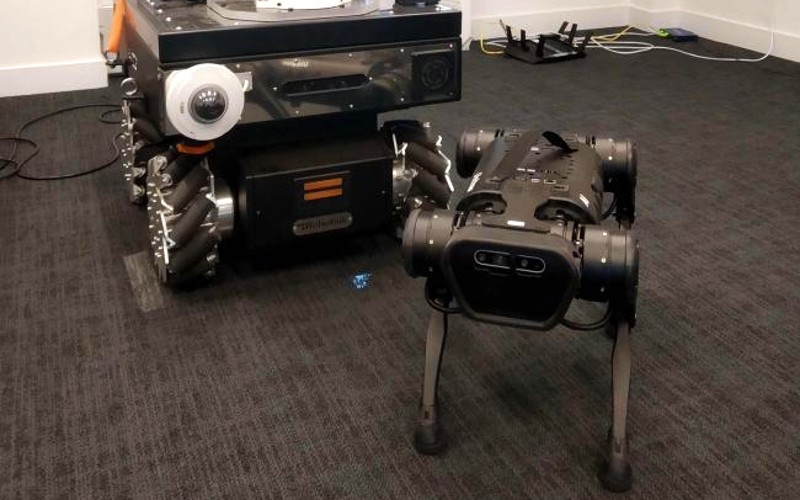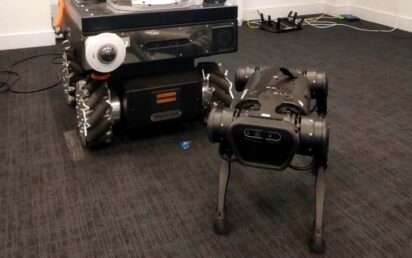Four-legged robots to assist British farmers and new types of therapy to treat chronic conditions such as Crohn’s disease are among nearly 100 cutting edge projects that will benefit from a £113 million government cash injection.
97 of the UK’s most promising science and research leaders will be backed with £113 million, Science Minister Amanda Solloway has announced, to help bring their innovative ideas from lab to market and provide bold solutions to tackle major global issues ranging from climate change to chronic disease.
Among the UK’s future scientific leaders being backed today is Dr Dimitrios Kanoulas at University College London who will lead the RoboHike project to give autonomous 4-legged robots the ability to navigate through difficult terrain, including in construction and agriculture, as well as at the scene of natural disasters.
This will enable fast, robust, and reliable navigation in situations where timely delivery of services and emergency aid is essential.
Another project, led by Dr Yujiang Wang at Newcastle University will use long-term brain recordings, combined with wearable environmental sensors, to capture and analyse fluctuations in epileptic seizures. Its aim is to gain a better understanding of how seizure activity and severity varies case by case and will enable Wang’s team to forecast the severity of upcoming seizures for individual patients, as well as developing future treatments that may reduce their severity.
Delivered through UK Research and Innovation’s (UKRI) flagship Future Leaders Fellowships scheme – which aims to establish the careers of the next generation of world class British scientists – the investment will enable researchers at universities and businesses to progress their studies quickly by funding essential equipment and paying for researcher wages.
Some of the other projects that have been announced are below:
University of Glasgow
Dr Emily Draper from the University of Glasgow will lead a project to develop organic materials to replace environmentally damaging and expensive metals in everyday smart devices such as tablets and smartphones. Today, new environmentally friendly materials are often discovered by chance and then a use is found for them. Dr Draper’s research aims to produce a predictive model that will allow organic materials to be developed to suit an intended purpose.
Elasmogen Ltd
Dr Obinna Ubah at Elasmogen Ltd will lead a project to deliver a new type of therapy that overcomes the limitations of traditional antibody therapies currently used to treat autoimmune diseases, like arthritis and Crohn’s disease.
Unlike antibody therapies, the new drugs developed by Dr Ubah will be capable of being used to treat more than one kind of disease, will not require an injection, and will not themselves trigger an adverse immune response. This means they will be able to be used for a much longer period than antibody therapies to treat serious autoimmune diseases.
University of Bristol
Dr James Byrne at the University of Bristol aims to understand how iron-containing minerals found in the ground can act like natural batteries – known as biogeobatteries. Dr Byrne’s project will investigate how bacteria use these batteries to generate and store energy. It is hoped this work will help us to address the challenges of today’s energy storage demands and build a more sustainable future.
University of Liverpool
Dr Joshua Dean at the University of Liverpool is leading a project that will use urban waterways, such as canals and rivers, to work out how to measure and map the origins of and reduce methane emissions.
Methane is a greenhouse gas 86 times more potent than CO2, and more than half of methane emissions come from human activity. Part of the research will involve mapping how urban waterways deliver methane into the atmosphere, for example through leaking gas pipes.


